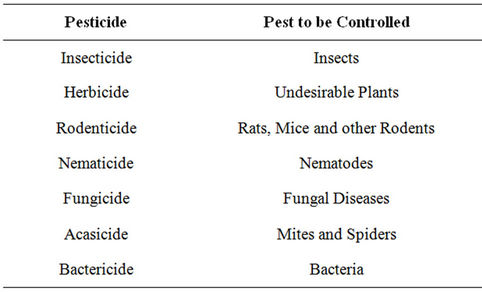Why in news?
Because of the food adulteration issue.
What are Pesticides?
In general, a pesticide is a chemical or biological agent (such as a virus, bacterium, antimicrobial, or disinfectant) that deters, incapacitates, kills, or otherwise discourages pests. Although pesticides have benefits, some also have drawbacks, such as potential toxicity to humans and other species. According to the Stockholm Convention on Persistent Organic Pollutants, 9 of the 12 most dangerous and persistent organic chemicals are organochlorine pesticides.
Common Pesticides and their effects?
Broad classification:
What is the regulatory system in India for pesticides?
While there is no dearth of government agencies to regulate use of pesticides in the country, what is absent is action on the ground.
There are three government agencies that function under three different ministries to control and regulate pesticide usage in India.
Some dangerous facts
[Source: Times of India, Wikipedia]
Because of the food adulteration issue.
What are Pesticides?
In general, a pesticide is a chemical or biological agent (such as a virus, bacterium, antimicrobial, or disinfectant) that deters, incapacitates, kills, or otherwise discourages pests. Although pesticides have benefits, some also have drawbacks, such as potential toxicity to humans and other species. According to the Stockholm Convention on Persistent Organic Pollutants, 9 of the 12 most dangerous and persistent organic chemicals are organochlorine pesticides.
Common Pesticides and their effects?
Broad classification:
 |
| Source: healthy.net
Detailed classification:
 |
| Source: Times of India |
What is the regulatory system in India for pesticides?
While there is no dearth of government agencies to regulate use of pesticides in the country, what is absent is action on the ground.
There are three government agencies that function under three different ministries to control and regulate pesticide usage in India.
Some dangerous facts
- India lacks a system to manage pesticides in a sound manner.
- It also allows the sale and usage of highly toxic pesticides banned in several countries.
- DDT is known for the danger it poses, but India still continues to produce it.
- Endosulfan was banned only in 2011 after the Supreme Court intervened.
- There is no control over sale of pesticides at the retail level.
[Source: Times of India, Wikipedia]


0 comments:
Post a Comment